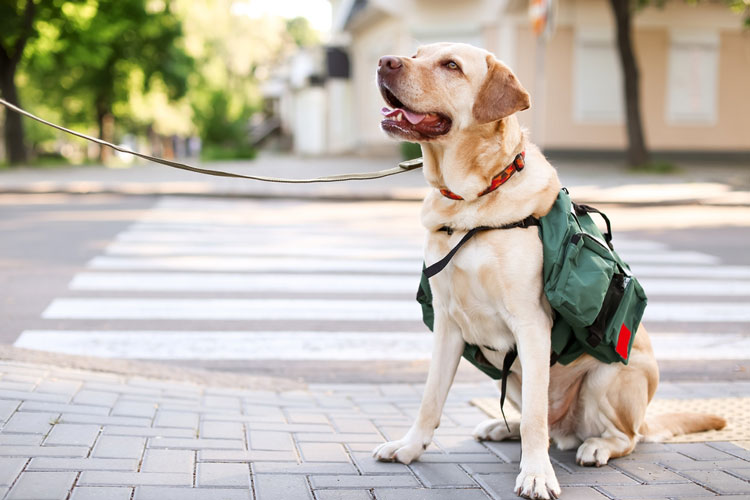Having a service dog can be hugely beneficial to many people struggling with physical or mental disabilities. Service dogs are trained to help their owner with their disability through doing specific tasks. Service dogs can help guide people, help them keep their balance, calm them down during panic attacks, block them from potential threats, allowing them to feel safe and secure, and so much more. Adults who’ve had hip replacement surgery and make use of a therapy dog require 50% less pain medication, proving just how big a difference the presence of an animal can make.
Psychiatric service dogs are rising in popularity and have shown to be very beneficial for individuals with autism, depression, anxiety, PTSD, and other mental illnesses. However, having a service animal can often bring struggling individuals unwanted attention and sometimes harassment. Store owners refuse to let them in, employees try to kick them out, and people try to pet and play with their service dog while it is working. All of these factors can make it very difficult to navigate the world with a service dog. Here are some simple tips to help you and your service dog venture into the day without worry.
American Disability Act
Service animals are protected under the American Disability Act (ADA), meaning legally they are considered necessary medical equipment and may be taken virtually anywhere with an individual. Employees and business owners are only allowed to ask two questions to determine if a dog is a service animal. These two questions are “Is this dog a service dog required because of a disability?” and “What task has the dog been trained to perform?”.
If an employee or business owners demands to see ID, certification, or to know more details about your disability, you are not legally obligated to give them any information, other then that the animal is a service dog you need for a disability. It is your right not to have to answer any demanding or personal questions about your situation. This also applies to awkward social situations and nosy family members.
Unwanted Attention
Often, people will approach you in public places and attempt to pet and play with your service animal. Many times, this will include small children who don’t realize that service dogs shouldn’t be distracted. Most of the time, these people do not realize that you are not supposed to approach or pet a service animal that is working, so politely explain service dog etiquette. Once people are better educated and understand, they will hopefully not bother your dog again without permission.
Clearly, it is important to know your legal rights under the ADA when responding to unwanted attention and rude invasions of privacy regarding your service animal or disability. Legally, you are not obligated to disclose any information other then informing people that your dog is a service animal you have for a medical disability. Most people do not understand service dog etiquette, in which case you can politely explain to them the correct way to act and treat your service dog. With these tools in hand, you can explore the world with confidence and your service dog by your side.
Another useful thing you need to have is a service animal letter of certification. If you should ever run into legal difficulties, this is a must have. You can easily get your service animal registered at United Support Animal today. Contact one of our experts and get started.




